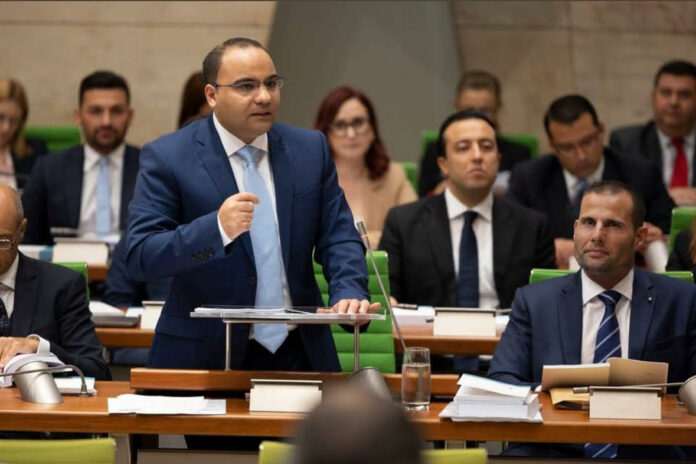VALLETTA (MALTA) (ITALPRESS/MNA) – Malta’s plummeting fertility rate is “the greatest challenge of our time,” Finance Minister Clyde Caruana told social partners on Friday. Speaking at the launch of the annual pre-budget document, he echoed Archbishop Charles Scicluna’s warning that the country risks “ethnic extinction.”
Caruana highlighted that many Maltese who have one child never go on to have a second. “Where will our population be in 50 years’ time? Will we be at a point of no return?” he asked. In 1985, around 6,000 Maltese children were born; today, the figure has dropped to 3,000, meaning 3,000 fewer Maltese each year.
The minister criticized politicians for focusing on “petty issues” while ignoring the demographic crisis. “It’s a shame that politicians don’t speak about this because it doesn’t win us votes at the next election,” he said. Caruana also linked Malta’s low fertility to insufficient educational ambitions, urging individuals to invest in skills, noting that families with more than two children often have higher incomes, partly due to such investments.
Although last year’s budget introduced financial incentives for families, Caruana acknowledged that these measures address only part of the problem. “Future steps need to be greater,” he said, citing financial barriers and lack of time as persistent challenges.
Turning to the upcoming budget, Caruana promised a “fiscally responsible” plan to maintain steady economic growth. He praised Malta’s resilience amid global instability, pointing to wars in Ukraine and Gaza and ongoing trade tensions, while highlighting GDP growth around 4%—three times the EU average.
Despite debt topping €11 billion, Caruana said Malta’s debt-to-GDP ratio has declined to 48%, well below the EU average. Energy and food subsidies will continue, though they have fallen from 1.8% of GDP in 2022 to 0.7% today.
Caruana attributed Malta’s economic success to rising employment, noting the country has moved from the bottom to the top of EU employment participation. He described government income improvements through better tax collection as a “silent revolution” allowing increased spending without raising taxes.
– Photo DOI –
(ITALPRESS).















